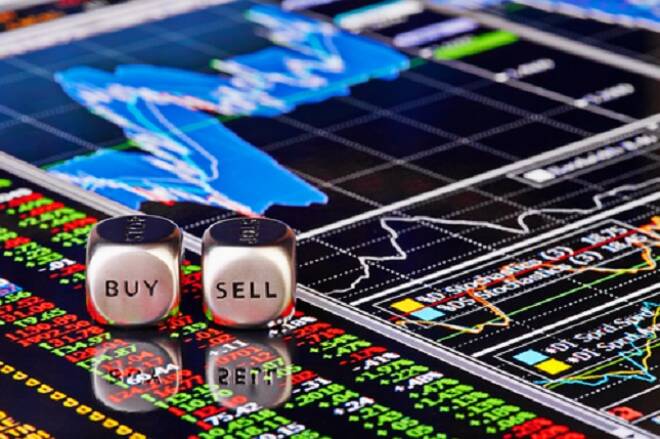Advertisement
Advertisement
Trade the Economy or Trade the Virus? Big Decision for Investors
By:
Despite some base-building in the markets this week, we’re likely to continue to see two-sided trading and heightened volatility because some investors will be trading the economic impact of the virus, and others will be basing their decisions on the virus itself.
Save lives or save the economy? That question seems to be driving the price action in the U.S. markets lately. Other pair themes seem to be old economic news versus new economic news. “Buy the rumor, sell the fact.” We saw that one on Thursday when stocks rallied after a weekly U.S. Jobless Claims report came in three-times higher than the consensus estimate. Another debate is about the type of recovery that we’ll see, “L-Shaped” versus “V-shaped”. All of this means is volatility is here to stay so embrace it.
Pershing Square Manager Bill Ackman Pockets Sweet Gain
Pershing Square manager Bill Ackman turned a net profit of more than $2 billion on Monday after he sold his bets against the market less than one week after warning CNBC that “hell is coming” and imploring the White House to shut down the country for a month.
He then used those proceeds to wager that existing Pershing bets, including hotel operator Hilton Worldwide, would rebound.
Ackman said the fund completed the exit from his bets against the market on March 23 and generated $2.6 billion compared with premiums paid and commissions totaling $27 million. The amount of capital Ackman put behind protecting credit – the actual principal wagered against the market – is unknown.
Though some, like fellow ex-hedge fund manager Michael Novogratz, blamed Ackman for stoking the market’s panic, the Pershing Square manager said in his Wednesday letter that the outlook for equities had changed in a material way over five days.
In my opinion, Ackman did not talk one side of the market to the press then do the exact opposite. He was bearish or short the market until conditions changed – the Fed stepped in with unprecedented monetary policy stimulus. It was smart to book profits since he believed he wasn’t going to win a battle against the Fed. After all, they own the printing press.
The lesson for traders: Don’t be afraid to change your opinion.
Hedge Fund Manager Paul Tudor Jones Ties His Strategy to Virus
Hedge fund manager Paul Tudor Jones told CNBC on Thursday the market could be higher by June despite what he sees as a turbulent month ahead.
“My guess is one of the reasons the market’s up right now is because of all the month-end rebalancing. The market’s front-running, it sees the fact that there are going to be a lot of equities to buy,” Jones told CNBC’s “Squawk Box.” “That’s one reason my guess is we’ll stay firm into month-end and then we’ll be challenged in April,” as the market digests a peak level of coronavirus cases.
“I think that could bring us to a retest, it might even bring us to a fractional new low. But I do think the stock market’s going to find a bottom once we get a peak in the epidemic curve, [there’s] not a doubt in my mind the stock market will rally,” he continued. “My guess is we’ll be higher three or four months from now, five months from now, than lower than where we are right now.”
The Short and Long of It
By covering his aggressive short position earlier this week, Ackman didn’t signal the market had bottomed. I think it indicated that we are close. His assessment, however, may not have had anything to do with whether he sees the virus epidemic peaking.
His decision to book profits had to do with the aggressive move by the Fed and probably a little to do with expectations of the government stimulus. He was making his decisions on his outlook for the economy.
Jones, on the other hand, appears to be tying his assessment on when the virus will peak. He also noted that even though COVID-19 spreads at a rapid pace, its death toll on the U.S. is still a fraction of what the flu often exacts in any given year.
Despite some base-building in the markets this week, we’re likely to continue to see two-sided trading and heightened volatility because some investors will be trading the economic impact of the virus, and others will be basing their decisions on the virus itself. At some point in the future, it will call come together. The virus will either go away, worsen or linger.
About the Author
James Hyerczykauthor
James Hyerczyk is a U.S. based seasoned technical analyst and educator with over 40 years of experience in market analysis and trading, specializing in chart patterns and price movement. He is the author of two books on technical analysis and has a background in both futures and stock markets.
Advertisement
